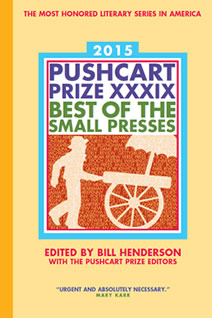 I came across the word “curmudgeon” the other day and was struck by what a fine alternative it is to “grouch” or “sourpuss.” Wondering where such a word came from, I searched out its etymology in my Oxford English Dictionary. I discovered that, though “curmudgeon” has been in use since the sixteenth century, even the experts can’t trace its derivation. As I sat pondering the mystery of “curmudgeon,” the word’s foggy origin and unique sound reminded me of one of my favorite children’s books, one I used to read long ago to my now-adult children— On Beyond Zebra, by Dr. Seuss. I’ve got my half-century old copy in front of me now, and memories waft from its pages as I turn them.
I came across the word “curmudgeon” the other day and was struck by what a fine alternative it is to “grouch” or “sourpuss.” Wondering where such a word came from, I searched out its etymology in my Oxford English Dictionary. I discovered that, though “curmudgeon” has been in use since the sixteenth century, even the experts can’t trace its derivation. As I sat pondering the mystery of “curmudgeon,” the word’s foggy origin and unique sound reminded me of one of my favorite children’s books, one I used to read long ago to my now-adult children— On Beyond Zebra, by Dr. Seuss. I’ve got my half-century old copy in front of me now, and memories waft from its pages as I turn them.
The ostensible subject of On Beyond Zebra is language—the alphabet, specifically. The story’s narrator explains to his “very young friend who is learning to spell” that the standard alphabet is woefully insufficient: there are marvelous creatures all over the world with bizarre names that require equally bizarre letters. The narrator conjures up these letters and creatures, one after the other, such as YUZZ for Yuzz-a-ma-Tuzz and SNEE for Sneedle (“a terrible kind of ferocious mos-keedle”). The book’s theme, nearly shouted at the reader in rhyme and illustration, is “Be creative!”
On Beyond Zebra is one of several books written and illustrated by Dr. Seuss between 1946 and 1956 that are hymns to the imagination. The pages of On Beyond Zebra, If I Ran the Zoo, If I Ran the Circus, and McElligott’s Pool burst with invention. Dr. Seuss’s pictures and rollicking anapestic tetrameter lead the reader to such thrilling oddities as fish with time-telling faces and tiny creatures that juggle punctuation marks. We find ourselves in such imagination-stretching locales as “Fuzz-a-ma-wuzza-ma-dill” and “the far western part of south-east North Dakota.” These books practice their central ideal: if the reader looks around him or herself with fresh and unbiased eyes, there are amazing things to be seen. Not only do these early works encourage readers to “think outside the box,” they model the process. The narrator of McElligott’s Pool, for example, speculates: “If I wait long enough, if I’m patient and cool,/ Who knows what I’ll catch in McElligott’s Pool?” Then he answers his own question by picturing page after page of spectacular fish eager to take his bait. We readers join him as he populates and names the creatures of his universe— the implication being that we share his god-like power to create.
It seems to me important not to confuse Seuss’s books in praise of creativity with such overtly moralizing works as How the Grinch Stole Christmas and Horton Hatches an Egg. Because books like Grinch or the Horton stories focus on a particular virtue, such as unselfishness or faithfulness, their outcomes are predictable and reductive. Their characters and settings may seem original, but they serve conventional conclusions: good wins; evil, if it isn’t purged, suffers. All of which is fine, if you like sermons. But what I am suggesting is that the books I’ve grouped with On Beyond Zebra portray a more complex, interesting, and truthful world.
The Zebra books are full of joyous wonder—but they also tell of misery and despair. In On Beyond Zebra the reader experiences creatures like the Quandary, who “worries, far into the night . . . Is his top side his bottom? Or bottom side top?” And there are Thnadners: “and oh, are they sad oh!/ The big one, you see, has the smaller one’s shadow.” Jogg-oons spend their lives “doodling” around “far desert dunes . . . crooning very sad tunes.” These creatures illustrate a fact about the world: sadness is as real as happiness. “Existential angst?” Seuss seems to ask the reader. “Here it is: look and learn.” Horton the elephant won’t always be there to bail you out.
Which brings me to Oh, the Places You’ll Go, Dr. Seuss’s last book. I’m afraid that, measured against his best earlier work, Seuss’s final story must be viewed as a dismal failure. I can hear your outraged voices: “What? The wonderful book I received (or gave) just this year as a graduation present a ‘dismal failure’? Why, the valedictorian quoted it in her commencement address—in fact, the speech itself was delivered in rhyme. It was so creative! And inspiring! What are you—some kind of curmudgeon?”
Call me what you will. But I condemn Oh the Places You’ll Go for the very same reasons that your valedictorian’s principal approved the speech that used it: it’s safe; it’s an agglomeration of platitudes; its messages are as generic as those of a Nike slogan or a Hallmark card. Where are the “Places” in Oh the Places You’ll Go? There are none. The book is nothing more than a series of substance-less slaps on the back, like “Kid, you’ll move mountains!” or “Life’s a great balancing act!” Clichés are fine for T-shirts, coffee mugs, and politicians, but once we’ve heard them, they dissolve like sugar stirred into a glass of water. By contrast, the masterfully imaginative works of the Zebra group take us everywhere: they show, rather than tell. In fact, they don’t just show, they show how.
I’d rather gift my graduates with On Beyond Zebra. Dr. Seuss left the final page of this book blank, except for one last fantastical letter with a question printed under it: What do you think we should call this one, anyhow? The reader has been invited to create both the name of the letter and the whatever-it-is the letter will help spell. Let’s say I call the letter CURM—needed to begin Curmudgeon, of course (the word even the Oxford English Dictionary can’t explain). The picture I draw is a cartoon version of me! I’m pointing at you, and I seem to be accusing you of something—but what is it? And what are you going to do about it?


